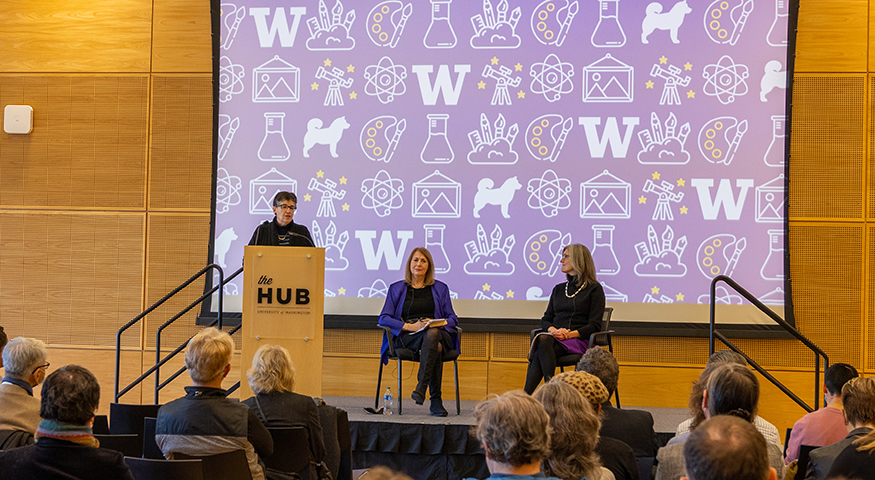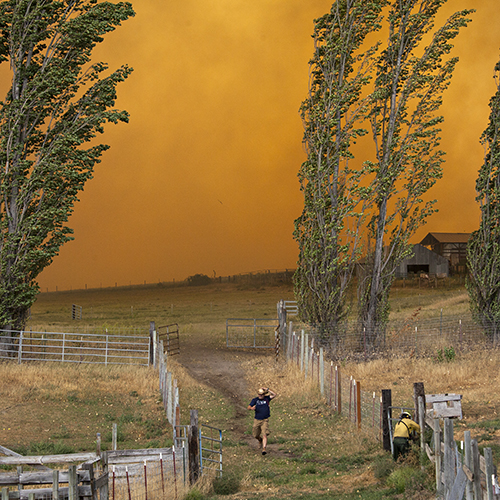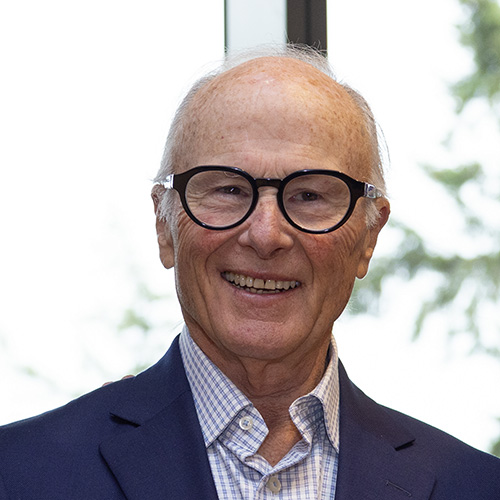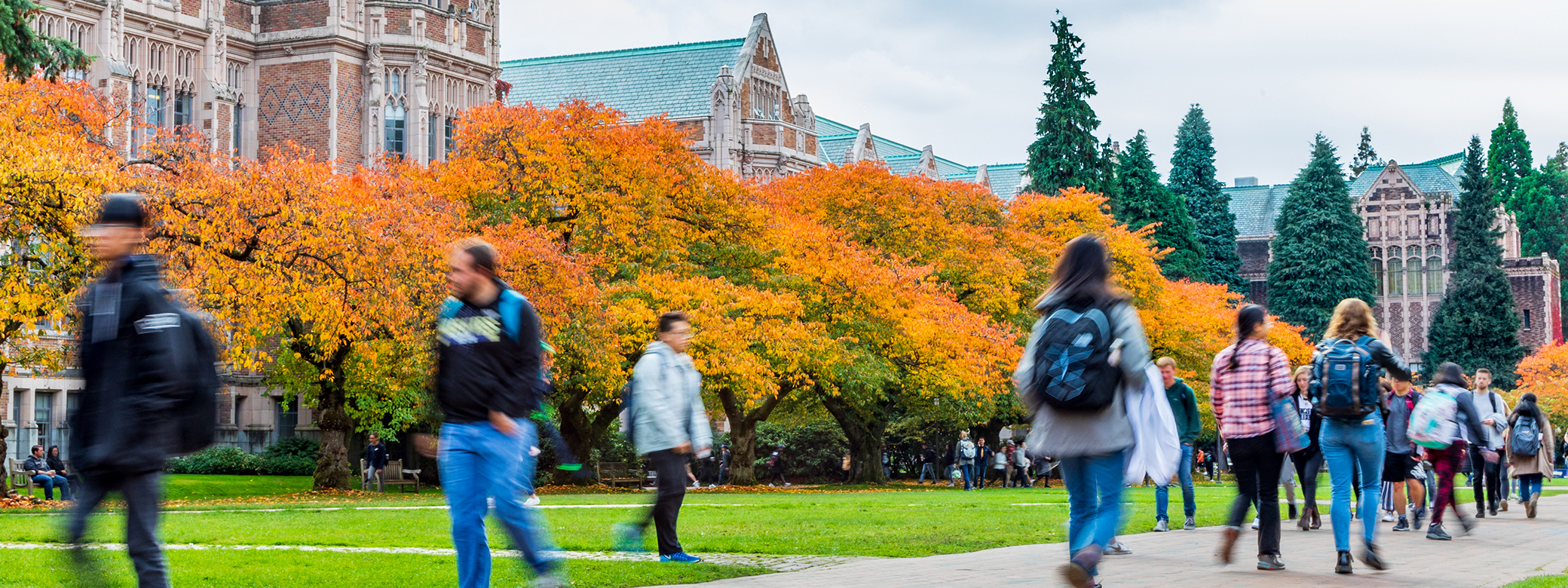
How does a place like the University of Washington work to transform higher education in an era of change? How can faculty rethink their courses and cross disciplinary boundaries to address pressing societal issues?
Big questions like these are at the heart of the College of Arts and Sciences’ (CAS’) new program, Rethinking the Academy (RTA). Initiated by CAS Dean Dianne Harris, RTA invites faculty, staff and students to work collaboratively to explore the future of teaching, learning and research in order to address global grand challenges and enact productive institutional change. Given RTA’s bold objectives, the program started with equal fanfare by inviting a recognized expert on higher education to its launch event.
Cathy Davidson is the author of several books including The New Education: How to Revolutionize the University to Prepare Students for a World in Flux and The New College Classroom. She speaks to international audiences about how leaders at colleges and universities can come together to rethink aging structures and systems and how faculty members can infuse new strategies to reinvigorate their courses. Billed as “a faculty member and a futurist,” Davidson directs the Futures Initiative at the City University of New York (CUNY). For the months leading up to the keynote, members of the UW community were invited to read The New Education and bring their ideas and questions to Davidson’s keynote session and conversation with Harris.

In her introduction of Davidson, UW President Ana Mari Cauce noted the significance of this moment in the history of education: “We are at an inflection point in higher education for so many reasons. This is a time for us to take stock of our unique assets and what capacity we have to take on the grand challenges of our time and prepare our students for a world that’s more evolving, dynamic and global than ever before.”
“I’m really proud that the College of Arts and Sciences is leading the conversation with Rethinking the Academy…it’s exactly where we need to be to start the conversation,” Cauce said.
Harris cited the unique capabilities that the UW and CAS can provide in reshaping the future of education, and why the College is uniquely positioned to take on RTA. “This started from my own restlessness about where higher education is today and the challenges we see across institutions of all kinds,” Harris said. “Starting the Rethinking initiative doesn’t come from a place of deficit thinking or thinking of what’s wrong…it comes from a place of imaginative excitement and that we’re in a transformative moment in higher education that’s ours to seize or ours to miss out on.”
Davidson and Harris’ conversation spanned many issues, including the history of the modern university and the systems and processes that developed in the latter half of the 19th century that are still in place today. Their discussion covered topics like general education requirements, strategies to redevelop coursework and a rethinking of approaches to grading.
“Yes, we can change…and yes, we have to change,” Davidson said. “We’ve inherited a system that was created between 1860 and 1925, and very little of the infrastructure has changed. The world has changed a lot since Fordism and Taylorism shaped the way we work and learn. If the [move to online during the pandemic] can happen in a week, anything can happen. We should be inspired by ourselves.”
In addition to Davidson’s keynote and subsequent faculty workshop, RTA includes additional opportunities for faculty development through upcoming workshops with HuMetrics. Further aspects of the initiative are currently in development, including the creation of a cohort of Dean’s Academy Fellows.
More Stories

What Students Really Think about AI
Arts & Sciences weigh in on their own use of AI and what they see as the benefits and drawbacks of AI use in undergraduate education more broadly.

10 Arts & Sciences Stories from 2025
As 2025 comes to a close, we're sharing some of the year's top Arts & Sciences stories.

A Transformative Gift for Arts & Sciences
To honor his wife and support the college that has meant so much to both of them, former Arts & Sciences dean John Simpson created the Katherine and John Simpson Endowed Deanship.
